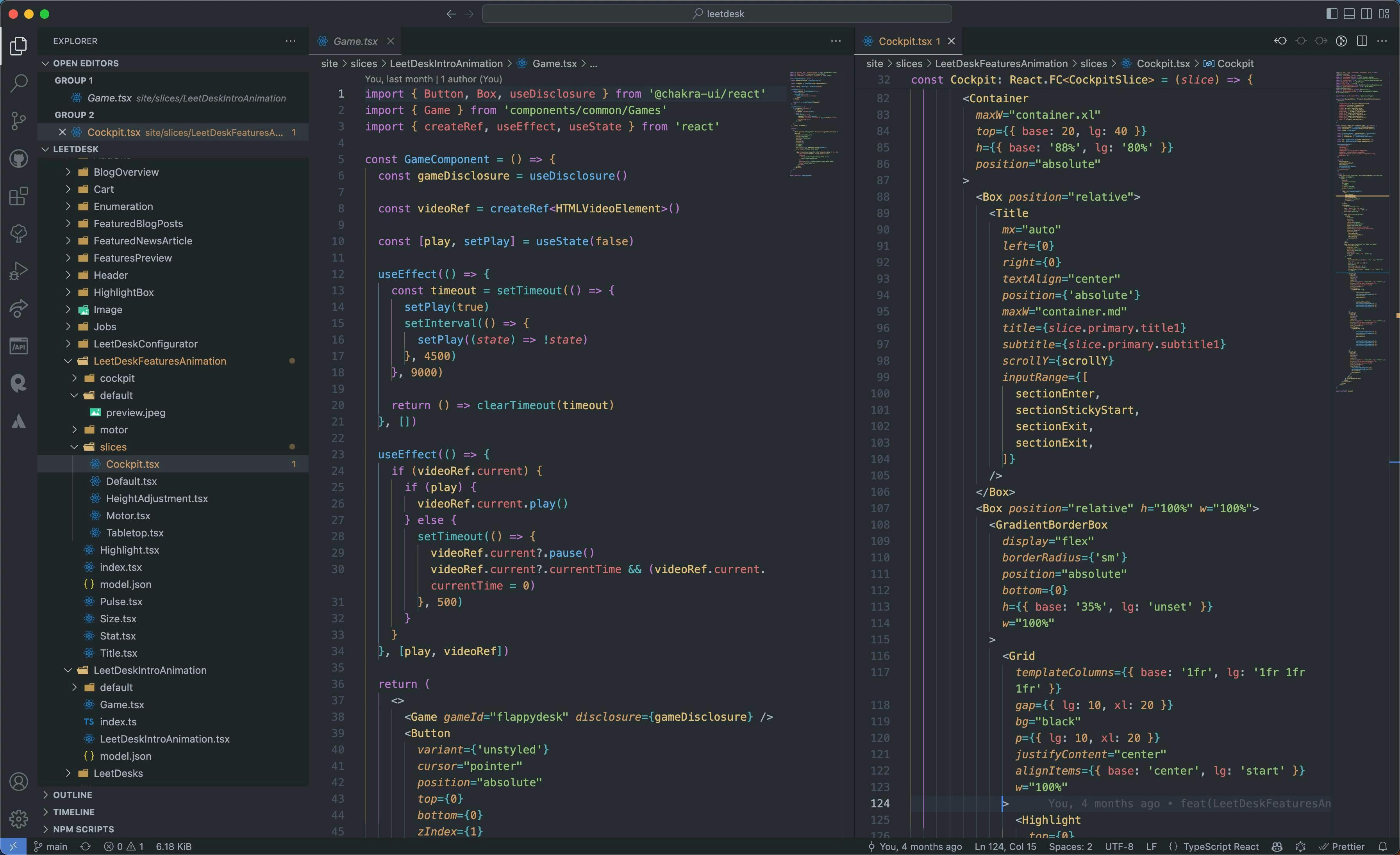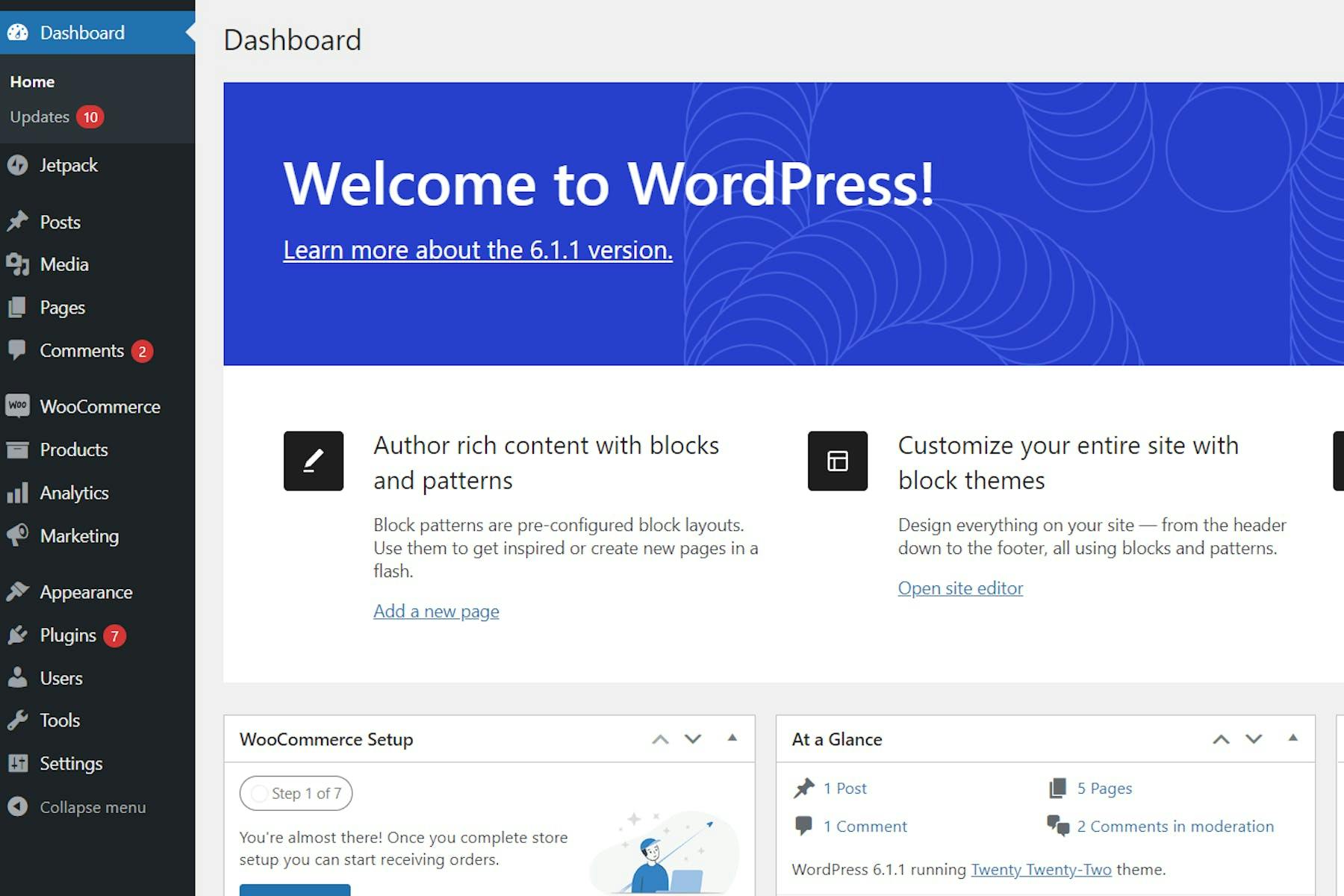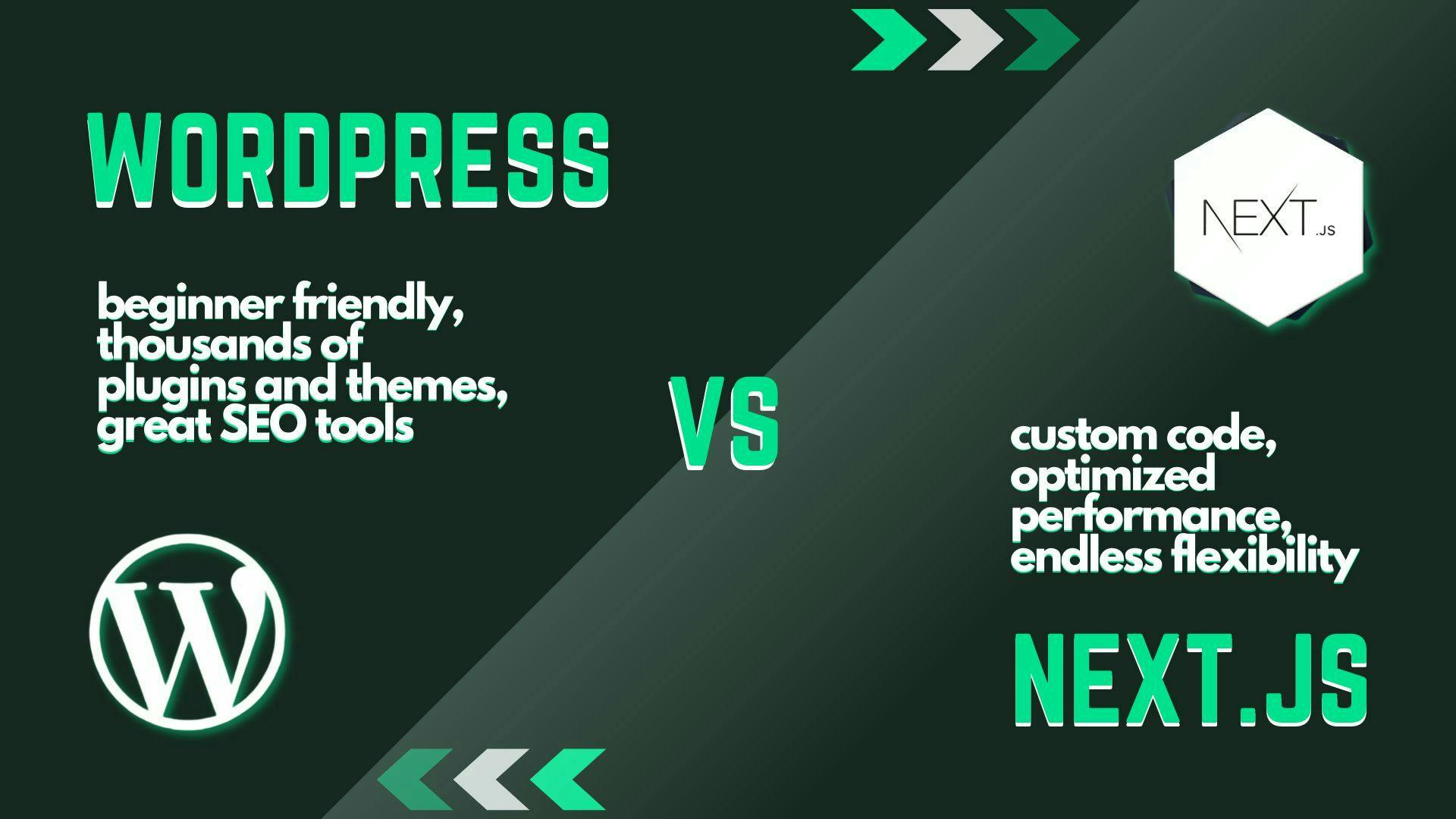Companies looking to create a new website for their business are tasked with an important first decision. Develop a custom-coded website from a framework like Next.js or use a website builder like WordPress. Ultimately, a brand has to choose one or the other. This choice greatly depends on the brand's long-term goals, budget, and need for integrations and custom features, among other things.
How much does a brand value ease of use? How about performance? SEO? Customization? Let's take a closer look at WordPress and Next.js to see how these different development pathways stack up against each other.
What is Next.js?
It's best to start with React to introduce Next.js. React is a Javascript framework that helps developers create frontend UI components and websites. Next.js is a frontend framework built on top of the React framework. React only supports client-side rendering. With client-side rendering, the first time a page loads for a user is quite slow, negatively impacting SEO. Next.js supports static and server-side rendering, which offers faster page loading and better SEO.

What is WordPress?
WordPress is the number one most popular website builder in the world. In fact, 42.4% of all websites online are created using WordPress. WordPress launched in 2003, primarily as a blogging platform. Over the last 20 years, WordPress has expanded to offer more and more options to help users create complex, customizable, and engaging websites.
The codebase of WordPress is written in PHP and uses MySQL for its database, with Javascript, HTML, and CSS rounding out the frontend. The WordPress software is entirely open-source, which means brands are free to alter or use WordPress with no restrictions.

Ease of Use
Accessibility for all is at the very core of WordPress's mission. As such, the software has a relatively low barrier to entry. Even non-technical individuals can learn to navigate the admin page, install themes and plugins, and add content. There is no need to learn coding in most cases, but the HTML, CSS, and Javascript can be edited if necessary.
Next.js, on the other hand, does require a high level of expertise with Javascript, HTML, and CSS. The initial setup is pretty straightforward. The foundation is set up for you, but after that, a developer must build all components, pages, and content from scratch.
Developers can use components of the React framework to build out a site quickly, but Next.js certainly has a much higher learning curve than WordPress. Brands looking to build their site with Next.js will likely need the aid of a software development agency.
Customization
WordPress is highly customizable thanks to its massive library of 50,000 + plugins created by community developers and brands like Yoast! and WooCommerce. There's a plugin for nearly every functionality, or feature one might need for a modern website.
The same can be said for themes. There are thousands and thousands of themes available, with free and paid options. Brands that need help finding a theme that suits their needs can hire a WordPress developer to create a custom theme. The software is 100% open-source, which means brands are free to alter the source code if necessary.

The Next.js framework is entirely open-ended, without any of the constraints of a website builder. With Next.js, brands have complete creative and development freedom over their website. The features and integrations that can be built with Next.js are limitless. Brands can support any third-party software integrations or develop complex and engaging storefronts.
Performance
Performance is where WordPress starts to stumble. It strongly relies on plugins to form a multi-functional website with features like database backups, social media integrations, checkout customization, and much more. Unfortunately, adding more than 5 or 10 plugins to a website starts to cause significant slowdowns. Pages load slower, and features become laggy.
Next.js doesn't suffer the same plugin fatigue that troubles WordPress sites because many features can be built from scratch in a more optimized way, or there are open-source packages available that are optimized by the community. With Next.js, it's possible to create static pages which can be stored on a Content Delivery Network (CDN) close to the user offering unparalleled speed. When comparing benchmarks for Next.js and WordPress, Next.js is the clear performance winner, especially with mobile devices.
Security
WordPress's security is highly dependent on security and feature updates, but the website builder's popularity and overreliance on plugins add a certain amount of risk.
Sites created with WordPress software are major targets for cyberattacks. Because almost half of all websites are built using WordPress's source code, there's a long list of past security vulnerabilities that hackers exploit if they identify a site with missing updates. Plugins can also act as a backdoor for malicious activity.

The static page design of Next.js provides excellent security for websites. Next.js static sites are separated from consumer data, databases, and dependencies, offering superior data security. Static pages are more secure than server-side generated (SSG) ones because they don't need a backend that serves them.
Like Wordpress Next.js also offers the creation of SSG pages. But they are more secure than WordPress pages because they rely on cloud functions that perform individual tasks without providing access to the entire backend which allows hackers to break WordPress sites.
SEO
WordPress is often lauded for its fantastic SEO setup, and for good reason. Thanks to some high-quality SEO plugins that aid with keyword optimization, meta descriptions, and image alt texts, sites developed with WordPress can perform very well in search engine rankings. As long as the site isn't bogged down with too many plugins because page load speed and other performance factors have an increasingly important effect on SEO.
Since Next.js sites are generally faster, Next.js websites perform well with Google's ranking algorithms. Brands can add the same meta descriptions and SEO tags to their sites just like on Wordpress.
Website Builder (WordPress) or Custom Code (Next.js)?
WordPress and Next.js are viable options for creating customer-friendly, engaging, and modern websites. WordPress is essentially the original website builder from which all website builders, like Wix and Squarespace, were modeled. Brands looking to migrate to WordPress will enjoy the thriving community, enormous plugin library, and easy content management system. There is a minimal learning curve and the software doesn't rely on custom coding.
The Next.js framework is all about custom coding. Brands that need custom integrations or app features will find way more flexibility with Next.js. And with the proper setup, its sites can beat WordPress sites in SEO, security, performance, and scalability. But Next.js adds another level of complexity to the development process since experienced developers will need to be brought on board to build out the site.
